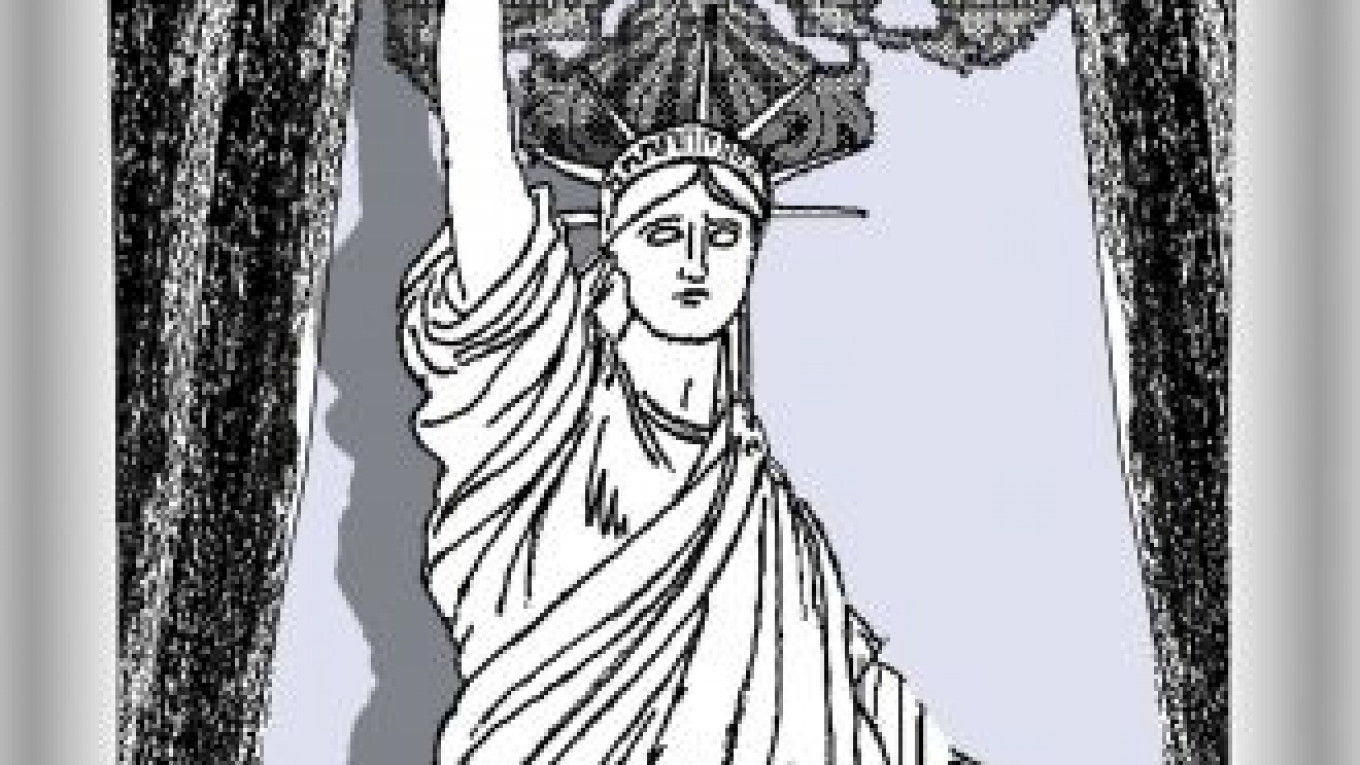President Dmitry Medvedev’s speech in St. Petersburg late last week marking the 150th anniversary of Tsar Alexander II’s decree to free the serfs may have been a hidden protest against Prime Minister Vladimir Putin’s autocracy.
Perhaps Medvedev was trying to play the role of Alexander II while surreptitiously portraying Putin as Tsar Nicholas I — Alexander II’s predecessor and one of Russia’s most reactionary monarchs who wholeheartedly embraced the ideological doctrine of “Orthodoxy, Autocracy and Nationality.”
Let’s take a crack at decoding Medvedev’s top six points from the speech:
1. Alexander II’s critics “tried to talk him out of freeing the serfs, arguing that the Russian people were not ready for freedom.”
Medvedev’s real message to Putin: Give back to the people the right to elect governors and mayors. I oppose the flawed reasoning behind your decision to cancel gubernatorial elections in 2004 and to increase the Kremlin’s power to remove disloyal and disobedient mayors — the notion that the people are not “ready” to make “correct choices” in regional and municipal elections. So, the Kremlin’s “benign and wise autocrats” must choose leaders for them.
2. “We shouldn’t be afraid of free people.”
Medvedev’s real message: Let opposition leaders appear on government-controlled television, don’t be afraid to participate in live televised political debates against opposition leaders, quit jailing and detaining them at rallies, and allow me to grant former Yukos CEO Mikhail Khodorkovsky early parole.
3. “Alexander II inherited a country whose principal political institutes were serfdom and a military-bureaucratic vertical power structure. … He understood that these institutions were weak and hopeless. … Government should not be the goal of development, but only an instrument for development.”
Medvedev’s message: After Soviet leader Mikhail Gorbachev and President Boris Yeltsin fought to free Russians from Soviet “serfdom,” you spent your first eight years as president reversing these democratic reforms and building an autocratic vertical power structure. We need to decrease the number of bureaucrats, make the vertical power structure more horizontal and create a government that prudently regulates business, not one that expropriates it.
4. “A nation cannot live on tightened screws. It is obvious that excessively strict order, an excess of controls … leads to an increase in corruption … and the degradation in government.”
Medvedev: Stop trying to cynically spin autocracy and economic stagnation as “stability.” This trick may have worked well in the early 2000s when people were still scarred from the chaotic 1990s, but it is not working anymore. People are no longer content with Brezhnev-like “stability;” they want genuine growth, development and economic opportunity in their own right.
5. “The ineffective economy [that Alexander II inherited] … threatened to destroy the country.”
Medvedev: We need to stop building “state capitalism.” We need to introduce more competition in the economy and stop handing over key business sectors to your friends and close allies on a monopoly basis. Otherwise, we will never diversify and will be doomed forever to become little more than a larger version of Venezuela or Nigeria.
6. “We have always had the ability to pull the wool over the people’s eyes.”
Medvedev: We should stop staging and orchestrating every public appearance. They are cheap PR tricks, and the people are no longer fooled by them. Let’s start by killing your ridiculous annual call-in shows.
In the end, Medvedev would deserve to be commended if his comments truly marked an attempt to reveal the truth about Putin’s autocratic rule, even if he was forced by circumstances beyond his control to use Aesopian language.
But the only problem is that Medvedev highly discredited himself with one fateful phrase in his speech: “We are continuing the course [of reforms] that was outlined a century and a half ago.” Thus, Medvedev gave himself away: He is trying to pull the wool over the people’s eyes just as much as Putin.
A Message from The Moscow Times:
Dear readers,
We are facing unprecedented challenges. Russia's Prosecutor General's Office has designated The Moscow Times as an "undesirable" organization, criminalizing our work and putting our staff at risk of prosecution. This follows our earlier unjust labeling as a "foreign agent."
These actions are direct attempts to silence independent journalism in Russia. The authorities claim our work "discredits the decisions of the Russian leadership." We see things differently: we strive to provide accurate, unbiased reporting on Russia.
We, the journalists of The Moscow Times, refuse to be silenced. But to continue our work, we need your help.
Your support, no matter how small, makes a world of difference. If you can, please support us monthly starting from just $2. It's quick to set up, and every contribution makes a significant impact.
By supporting The Moscow Times, you're defending open, independent journalism in the face of repression. Thank you for standing with us.
Remind me later.






